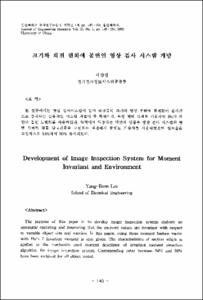환경운동에 있어서 환경비정부기구의 역할과 한계
- Alternative Title
- NGOs' Roles and Limitations in International Environmental Movement
- Abstract
- 국제환경운동에 있어서 비정부기구의 역할은 1970년대를 기점으로 강화되기 시작하였으며, 특히 탈냉전 이후에는 세계시민사회의 한 구성요소로서 자리매김되기에 이르렀다. 하지만 환경비정부기구들은 조직, 자금, 정보, 인적 구성에 있어서 취약한 만큼, 이를 극복하기위한 전략의 수립이 필요하다. 여기에는 시민사회의 자발적 참여 강화, 환경운동에서의 정치성의 배제 그리고 국제적 연대 강화를 통한 환경운동 세력 결집 등이 가장 긴요하다.
Non-Governmental Organizations have played a great role in international environmental movement since early 1970's and their importance in a world civil society has been recognized especially since the end of the Cold War. But they still have problems with regard to organizational unity, fund-raising, information and human resources. So, to overcome these limitations, a new strategy is needed to boost voluntary participation of the civil society, to exclude political motives from environmental movement and to regiment international environmental forces through strengthened international solidarity.
Non-Governmental Organizations have played a great role in international environmental movement since early 1970's and their importance in a world civil society has been recognized especially since the end of the Cold War. But they still have problems with regard to organizational unity, fund-raising, information and human resources. So, to overcome these limitations, a new strategy is needed to boost voluntary participation of the civil society, to exclude political motives from environmental movement and to regiment international environmental forces through strengthened international solidarity.
- Issued Date
- 2001
- Type
- Research Laboratory
- Alternative Author(s)
- Kim, Joo Hong
- Publisher
- 사회과학논집
- Language
- kor
- Rights
- 울산대학교 저작물은 저작권에 의해 보호받습니다.
- Citation Volume
- 11
- Citation Number
- 1
- Citation Start Page
- 123
- Citation End Page
- 139
- Appears in Collections:
- Research Laboratory > Journal of social science
- 파일 목록
-
-
Download
 000002024905.pdf
기타 데이터 / 342.51 kB / Adobe PDF
000002024905.pdf
기타 데이터 / 342.51 kB / Adobe PDF
-
Items in Repository are protected by copyright, with all rights reserved, unless otherwise indicated.